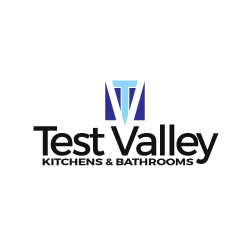Garage Conversions in Thatcham
ND Building & Refurbishments is your go-to solution for all building and refurbishment needs in the heart of Cle... read more »
Welcome to Test Valley Kitchens and Bathrooms Ltd, your premier choice for kitchen fitters, kitchen designers, and bathroom fitters in Ba... read more »
K E Z BUILD is a distinguished tradespeople business nestled in the vibrant town of Didcot, proudly serving the entire O... read more »
Welcome to Harding Homes, your go-to experts for all things related to property preservation and improvement in Birch Hill and across Ber... read more »
Welcome to Will Build It, your trusted partner for all your building and renovation needs in Charvil and across Berkshire. As a leading p... read more »
Welcome to Kape Construction, your go-to experts for all construction needs in Beaumont and the wider Berkshire<... read more »
Welcome to ROB-THE-BUILDER, your premier choice for top-notch building services in Cippenham and the surrounding Berkshire area. Since 20... read more »
Welcome to UK Trinity LTD, your trusted partner for top-notch construction and maintenance services in Coley and throughout Berkshire. As... read more »
Welcome to Haven Build Ltd, the premier choice for builders in Gardeners Green, proudly serving the entire Berkshire region. With over 30... read more »
M&C Building Solutions Ltd is a premier building company based in the charming locale of Oakridge, offering a compre... read more »
Welcome to Wooden Built Ltd, your premier choice for carpentry, painting and decorating, flooring, kitchen installation, and garage conve... read more »
Welcome to AGCO Construction, your premier choice for Builders, Extension Builders, Bricklayers, Patio Contractors, Driveway Contractors,... read more »
Welcome to Prime Design and Build, the premier choice for Builders, Landscaping Contractors, Property Maintenance, Property Refurbishment... read more »
Welcome to Substructure Building Contractors, your pr... read more »
Hambro Builders Ltd is your go-to co... read more »
Welcome to GS Integrator Ltd, a premier construction... read more »
Welcome to ES Building Solution Ltd, your premier cho... read more »
Ace Design To Build is a distinguish... read more »
Diamond Building Group: Leading Builders and... read more »
Introduction to Garage Conversions in Thatcham
Garage conversions in Thatcham have become increasingly popular as homeowners seek to maximise their living space without the hassle of moving. By transforming an underutilised garage into a functional room, you can significantly enhance your home's value and utility. Whether you're dreaming of a new home office, a cosy guest room, or a vibrant play area for the kids, a garage conversion offers a versatile solution.
Understanding the Benefits of Garage Conversions
Garage conversions offer a plethora of benefits that make them an attractive option for homeowners. Firstly, they are a cost-effective way to increase your living space. Compared to building an extension, converting a garage is usually less expensive and quicker. Additionally, it can increase your property's value, making it a wise investment.
Moreover, a garage conversion allows for customisation to suit your specific needs. Whether you need an extra bedroom, a home gym, or a studio, the possibilities are endless. Furthermore, by utilising existing space, you contribute to sustainable living by reducing the need for new construction materials.
Cost-Effectiveness
One of the primary advantages of garage conversions is their cost-effectiveness. Unlike traditional home extensions, which can be pricey and time-consuming, converting a garage is typically more affordable. This is because the basic structure is already in place, reducing the need for extensive construction work.
Increased Property Value
A well-executed garage conversion can significantly boost your property's market value. Potential buyers often view additional living space as a valuable asset, making your home more appealing in the competitive real estate market.
Customisation and Flexibility
Garage conversions offer unparalleled flexibility in terms of design and functionality. You can tailor the space to meet your specific needs, whether it's creating a serene home office or a lively entertainment room. This adaptability ensures that the converted space aligns perfectly with your lifestyle.
Planning Your Garage Conversion
Before embarking on a garage conversion project, careful planning is essential to ensure a smooth process. Start by assessing your needs and envisioning how the new space will be used. Consider factors such as lighting, insulation, and access to utilities.
Assessing Your Needs
Begin by identifying the primary purpose of the conversion. Are you looking to create an additional bedroom, a home office, or a recreational area? Understanding your needs will guide the design process and help you make informed decisions.
Design Considerations
When planning the design, think about the layout, lighting, and ventilation. Natural light can be enhanced by adding windows or skylights, while proper ventilation ensures a comfortable environment. Additionally, consider the placement of electrical outlets and heating systems to optimise functionality.
Budgeting and Financing
Establishing a budget is crucial to avoid overspending. Consider all potential costs, including materials, labour, and any necessary permits. If financing is required, explore options such as home improvement loans or remortgaging to fund the project.
Legal and Regulatory Considerations
Before commencing a garage conversion, it's important to be aware of the legal and regulatory requirements. In Thatcham, certain permissions and regulations must be adhered to, ensuring the conversion is compliant with local building codes.
Planning Permission
In many cases, garage conversions fall under permitted development rights, meaning planning permission may not be required. However, it's essential to check with the local planning authority to confirm if any permissions are needed, especially if the property is in a conservation area or has listed status.
Building Regulations
Regardless of planning permission, garage conversions must comply with building regulations. These regulations ensure the safety and structural integrity of the conversion, covering aspects such as insulation, fire safety, and accessibility.
Party Wall Agreements
If your garage is attached to a neighbouring property, a party wall agreement may be necessary. This legal agreement outlines the rights and responsibilities of both parties, ensuring that the conversion does not negatively impact the adjoining property.
Choosing the Right Professionals
Hiring the right professionals is crucial to the success of your garage conversion. From architects to builders, selecting experienced and reputable experts will ensure a high-quality result.
Architects and Designers
An architect or designer can help bring your vision to life, creating detailed plans that maximise the potential of the space. They will consider factors such as layout, aesthetics, and functionality, ensuring the conversion meets your needs.
Builders and Contractors
Choosing skilled builders and contractors is essential for executing the conversion efficiently and to a high standard. Look for professionals with experience in garage conversions and check references to ensure their reliability and expertise.
Project Management
Effective project management is key to keeping the conversion on track and within budget. Whether you manage the project yourself or hire a professional, ensure clear communication and regular updates to avoid any misunderstandings or delays.
Design Ideas for Garage Conversions
The design possibilities for garage conversions are virtually limitless. Whether you prefer a modern aesthetic or a cosy, traditional feel, there are numerous design ideas to inspire your project.
Home Office
With the rise of remote working, a home office is a popular choice for garage conversions. Create a productive and comfortable workspace with ample lighting, ergonomic furniture, and efficient storage solutions.
Guest Bedroom
Transform your garage into a welcoming guest bedroom, complete with a comfortable bed, stylish decor, and ensuite facilities. This provides a private space for visitors, enhancing their stay.
Entertainment Room
For those who love to entertain, an entertainment room is an ideal option. Incorporate a home cinema system, gaming consoles, and a cosy seating area to create the ultimate leisure space.
Home Gym
Convert your garage into a personal fitness haven with a home gym. Equip the space with exercise machines, weights, and mirrors to create an inspiring environment for workouts.
Maximising Space and Functionality
To make the most of your garage conversion, focus on maximising space and functionality. Clever storage solutions and efficient layouts can transform even the smallest garage into a versatile living area.
Smart Storage Solutions
Incorporate built-in storage units, shelves, and cabinets to keep the space organised and clutter-free. Utilise vertical space with tall shelving and consider multi-functional furniture to optimise the room's functionality.
Open Plan Layouts
An open plan layout can create a sense of spaciousness, making the converted garage feel larger and more inviting. Consider removing unnecessary walls and using furniture to define different zones within the space.
Multi-Functional Furniture
Choose furniture that serves multiple purposes, such as a sofa bed or a foldable desk. This flexibility allows the space to adapt to different needs, whether it's hosting guests or working from home.
Ensuring Comfort and Energy Efficiency
Comfort and energy efficiency are crucial considerations for any garage conversion. By focusing on insulation, heating, and lighting, you can create a comfortable and sustainable living space.
Insulation and Heating
Proper insulation is essential to maintain a comfortable temperature and reduce energy costs. Insulate walls, floors, and ceilings, and consider installing energy-efficient heating systems, such as underfloor heating or electric radiators.
Lighting Solutions
Effective lighting enhances the ambience and functionality of the converted space. Incorporate a mix of natural and artificial lighting, using windows, skylights, and energy-efficient LED fixtures to create a bright and inviting environment.
Ventilation and Air Quality
Ensure adequate ventilation to maintain good air quality and prevent dampness. Install windows that can be opened, and consider mechanical ventilation systems if necessary to ensure a fresh and healthy indoor environment.
Overcoming Common Challenges
While garage conversions offer numerous benefits, they can also present challenges. By anticipating and addressing these issues, you can ensure a successful and stress-free conversion.
Structural Limitations
Garages may have structural limitations, such as low ceilings or uneven floors. Address these issues by consulting with professionals who can provide solutions, such as raising the roof or levelling the floor.
Access and Privacy
Consider how the converted space will be accessed and ensure it offers sufficient privacy. This may involve creating a separate entrance or installing soundproofing to minimise noise from adjacent areas.
Utility Connections
Connecting utilities, such as electricity, water, and heating, can be challenging in a garage conversion. Work with experienced professionals to ensure these connections are made safely and efficiently.
Maintaining Your Converted Garage
Once your garage conversion is complete, regular maintenance is essential to preserve its condition and functionality. By taking proactive measures, you can ensure the space remains a valuable asset to your home.
Regular Inspections
Conduct regular inspections to identify any issues, such as dampness, structural damage, or electrical faults. Addressing these problems promptly can prevent more significant issues from developing.
Cleaning and Upkeep
Maintain a clean and organised space by regularly cleaning and decluttering. This not only enhances the appearance of the converted garage but also ensures it remains a functional and enjoyable area.
Updating and Renovating
Over time, you may wish to update or renovate the converted space to reflect changing needs or design trends. Consider repainting, replacing furniture, or upgrading fixtures to keep the area fresh and appealing.
Frequently Asked Questions
Do I need planning permission for a garage conversion in Thatcham?
In many cases, planning permission is not required for a garage conversion in Thatcham, as it falls under permitted development rights. However, it's essential to check with the local planning authority to confirm if any permissions are needed.
How much does a garage conversion cost?
The cost of a garage conversion can vary depending on factors such as size, design, and materials. On average, you can expect to spend between £5,000 and £20,000. It's important to establish a budget and obtain quotes from multiple contractors to ensure a fair price.
How long does a garage conversion take?
The duration of a garage conversion depends on the complexity of the project. On average, it can take between 4 to 6 weeks to complete. Factors such as design changes, weather conditions, and availability of materials can impact the timeline.
Can I convert a detached garage?
Yes, detached garages can be converted into functional living spaces. However, additional considerations may be required, such as creating a suitable access point and ensuring utility connections are in place.
Will a garage conversion add value to my home?
A well-executed garage conversion can increase your home's value by providing additional living space. Potential buyers often view this as a valuable asset, making your property more appealing in the real estate market.
What are the building regulations for garage conversions?
Building regulations for garage conversions cover aspects such as insulation, fire safety, and accessibility. It's important to ensure compliance with these regulations to guarantee the safety and structural integrity of the conversion.

















